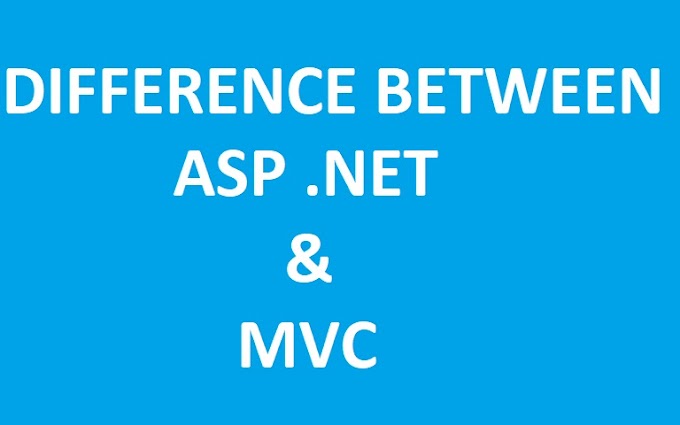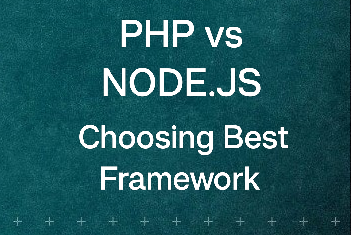When it comes to web development frameworks, ASP.NET MVC and ASP.NET Core are two giants that have made significant impacts in the industry. Both frameworks are products of Microsoft, offering powerful tools and features for building robust web applications. In this article, we'll delve into the core differences between ASP.NET MVC and ASP.NET Core to help you make an informed decision when choosing the right framework for your project.
1. Understanding ASP.NET MVC
ASP.NET MVC, short for Model-View-Controller, is a mature web development framework that has been around for quite some time. It follows the traditional MVC pattern, where the application's logic is divided into three main components: the Model, the View, and the Controller. This separation allows developers to write clean and organized code, making it easier to maintain and scale applications.
2. Introducing ASP.NET Core
ASP.NET Core, on the other hand, is the next generation of ASP.NET. It is a complete rewrite of the ASP.NET framework, designed to be open-source, cross-platform, and modular. ASP.NET Core is not only a web framework but also includes a runtime that can be used for building console applications and APIs. This flexibility makes it highly versatile and suitable for a wide range of development tasks.
3. Cross-platform Compatibility
One of the most significant differences between ASP.NET MVC and ASP.NET Core lies in their cross-platform compatibility. While ASP.NET MVC primarily targets Windows environments, ASP.NET Core is designed to run on Windows, macOS, and Linux. This cross-platform support allows developers to work on different operating systems, enhancing collaboration and development efficiency.
4. Dependency Injection
ASP.NET Core embraces dependency injection as a first-class citizen. It provides an integrated and straightforward dependency injection system that helps manage the application's components and their dependencies efficiently. In contrast, ASP.NET MVC does support dependency injection but doesn't offer the same level of built-in support and flexibility as ASP.NET Core.
5. Performance and Speed
Thanks to its lightweight and modular architecture, ASP.NET Core outperforms ASP.NET MVC in terms of speed and performance. The revamped design of ASP.NET Core reduces overhead and improves response times, making it a preferred choice for high-performance web applications.
6. Tag Helpers
Another feature that sets ASP.NET Core apart from ASP.NET MVC is Tag Helpers. Tag Helpers are simple to use and provide a more HTML-friendly way to generate dynamic content compared to traditional HTML helpers. They enable cleaner, more readable code and make the development process more efficient.
7. .NET Framework Compatibility
ASP.NET MVC relies on the .NET Framework, which means that it is tightly coupled with the framework's versions. On the contrary, ASP.NET Core is decoupled from the .NET Framework, allowing developers to update the framework independently. This decoupling ensures better compatibility and facilitates the use of the latest .NET features.
8. Support for NuGet Packages
Both ASP.NET MVC and ASP.NET Core support NuGet packages, but ASP.NET Core's modular approach and compatibility with the .NET Standard allows for seamless integration with a broader range of third-party libraries. This extensive support makes it easier for developers to extend their applications with additional functionalities.
9. Hosting and Deployment
When it comes to hosting and deployment options, ASP.NET Core enjoys greater flexibility. Since it is designed to be cross-platform, it can be hosted on a variety of web servers, including IIS, Apache, and Nginx. ASP.NET MVC, on the other hand, is mainly intended for IIS hosting, limiting deployment options in comparison.
10. Community and Support
ASP.NET MVC has a well-established community and has been widely used for many years. While ASP.NET Core is relatively newer, it has quickly gained popularity due to its modern features and cross-platform support. Both frameworks have active community support, but ASP.NET Core's community is growing rapidly and provides valuable resources for developers.
Conclusion
In conclusion, both ASP.NET MVC and ASP.NET Core are powerful web development frameworks, each with its own set of advantages. If you require a robust, Windows-centric framework with a mature ecosystem, ASP.NET MVC might be the right choice. On the other hand, if you need a modern, cross-platform solution that offers better performance and scalability, ASP.NET Core should be your go-to option.
Ultimately, the decision between ASP.NET MVC and ASP.NET Core will depend on your specific project requirements, team preferences, and long-term goals. Whichever framework you choose, embracing either of these Microsoft-backed technologies will undoubtedly empower you to build exceptional web applications and stay ahead in the competitive world of web development.
Related Articles














If anyone of you have any suggestions or if you want post on any other topic tell us in comment section below
ReplyDeleteYou could have single stack with MVC and WebAPI with asp.net as well. Unlike core, There are two base controllers for MVC. one for webapi and the other for MVC
ReplyDelete